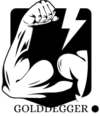Understanding the Role of Protein in an Active Lifestyle
Protein is one of the most essential macronutrients for anyone leading an active lifestyle. Whether you’re an athlete, a fitness enthusiast, or simply someone who incorporates physical activity into their daily routine, your body requires a consistent intake of high-quality protein to repair muscle tissue, support metabolic functions, and enhance recovery.
Table of Contents
ToggleThe key lies in finding the optimal protein intake — too little, and you risk muscle breakdown and fatigue; too much, and you may strain your kidneys or store excess as fat. So, how much is just right?

Protein: The Foundation of Muscle Repair and Growth
Engaging in any form of exercise — weightlifting, running, cycling, swimming, or high-intensity interval training — breaks down muscle fibers. The body needs protein to repair and rebuild these fibers, making them stronger and more resilient over time.
Protein is made up of amino acids, the building blocks of muscle. Some are essential (your body can’t produce them on its own), which means you must obtain them through diet. Without adequate protein, your recovery slows, muscle mass may decrease, and performance can suffer.

Daily Protein Requirements Based on Activity Levels
1. Sedentary Individuals
The average sedentary adult needs about 0.8 grams of protein per kilogram of body weight. This baseline amount is designed to prevent deficiency, not support athletic performance.
Example: A sedentary individual weighing 70 kg (154 lbs) would need approximately 56 grams of protein per day.
2. Active Individuals

For those engaging in moderate physical activity several times per week, the recommended protein intake rises to 1.2–2.0 grams per kilogram of body weight. This range supports muscle repair and reduces the risk of overtraining injuries.
Example: A moderately active person weighing 70 kg may require between 84–140 grams of protein daily.
3. Strength Athletes and Bodybuilders
Those focusing on muscle gain and strength training often require even more — about 1.6–2.2 grams per kilogram. During bulking phases or periods of intense training, this might be bumped up to 2.4 grams per kilogram.
Example: A 90 kg bodybuilder could benefit from consuming 144–198 grams of protein daily.

4. Endurance Athletes
Runners, cyclists, and swimmers who train intensively require 1.2–1.8 grams per kilogram to maintain lean mass and support energy metabolism.
Example: An endurance athlete weighing 65 kg might need 78–117 grams per day.

Best Sources of High-Quality Protein
Meeting your protein needs is not just about quantity — quality matters too. Complete proteins contain all nine essential amino acids and are considered superior for muscle repair.
Animal-Based Protein Sources:
-
Chicken breast (31g per 100g)
-
Eggs (6g per egg)
-
Greek yogurt (10g per 100g)
-
Salmon and other fatty fish (22–25g per 100g)
-
Lean beef (26g per 100g)
-
Milk (8g per cup)

Plant-Based Protein Sources:
-
Lentils (9g per 100g cooked)
-
Quinoa (8g per cup cooked)
-
Chickpeas (15g per cup)
-
Tofu and tempeh (10–19g per 100g)
-
Hemp seeds and chia seeds (5–10g per 30g)
-
Edamame (11g per 100g)

Tip: For vegetarians and vegans, combining plant-based proteins like beans with grains (e.g., rice and beans) ensures a full amino acid profile.
Timing Your Protein Intake for Optimal Performance
To maximize muscle synthesis and recovery, spread protein intake evenly throughout the day — rather than loading up at one meal.
-
Breakfast: Include 20–30g of protein (e.g., eggs, yogurt, or protein smoothie)
-
Lunch and Dinner: Aim for 25–35g of protein per meal
-
Post-Workout: Consume 20–30g of fast-digesting protein within 30–60 minutes post-exercise to aid recovery
-
Snacks: Consider high-protein options like boiled eggs, jerky, or protein bars

Do You Need Protein Supplements?
Whole food sources should be your first choice, but protein supplements like whey, casein, or plant-based powders can help meet daily needs — especially post-workout or when you’re on the go.
-
Whey Protein: Quickly absorbed, ideal for post-workout recovery
-
Casein Protein: Slow-digesting, perfect before bedtime
-
Plant-Based Blends: Great for vegans or those with dairy sensitivities

Choose supplements with minimal additives, low sugar, and third-party testing for quality assurance.
Signs You’re Not Getting Enough Protein
-
Fatigue and weakness
-
Slow recovery after workouts
-
Muscle loss or difficulty gaining muscle
-
Brittle nails and hair thinning
-
Frequent injuries or illness
If you’re experiencing these symptoms, it’s time to reevaluate your diet and protein intake.

Myths About Protein Intake Debunked
1. “Too much protein damages the kidneys.”
In healthy individuals, high protein intake has not been shown to harm kidney function. This myth often arises from confusion with individuals who have pre-existing kidney disease.
2. “You can only absorb 30g of protein per meal.”
Research shows the body can process more than 30g per meal —

though protein synthesis may peak around that amount, excess protein still supports other functions such as hormone production and immune support.
3. “You don’t need protein if you’re not bodybuilding.”
Every active person — whether trying to build muscle, lose fat, or maintain energy — needs adequate protein. It’s not just for bodybuilders.
Calculating Your Ideal Protein Intake
Here’s a quick formula to estimate your protein needs:
Protein (g/day) = Body weight (kg) × Activity Level Factor
| Activity Level | Protein Multiplier |
|---|---|
| Sedentary | 0.8 g/kg |
| Light Activity | 1.0–1.2 g/kg |
| Moderate Activity | 1.2–1.6 g/kg |
| Heavy Training | 1.6–2.2 g/kg |
| Intense Strength | 2.0–2.4 g/kg |

Example: For a 75 kg moderately active person:
75 × 1.5 = ~113 grams of protein per day
Use tools or apps like MyFitnessPal or Cronometer to track your intake precisely.
Final Thoughts
Meeting your daily protein needs is essential for optimal performance, recovery, and overall health in an active lifestyle. Understanding the right amount, source, and timing can significantly impact your fitness journey — helping you achieve your goals faster and more efficiently.
If you’re unsure about your specific needs, consult a registered dietitian or certified nutritionist to create a personalized plan.
Fuel your performance. Respect your recovery. Prioritize your protein.
The surprising reason you're losing muscle after 40..
You train hard… you’ve been lifting weights for years…
Maybe you just turned 40… 50… or 60… (or more).
You know you’re still in way better shape than the average guy who doesn’t work out…
The problem is, no matter how hard you train, or how good you eat, you just CAN’T seem to build or even hold onto muscle and strength like you used to?

Even with all your hard training, you’re STILL slowly getting smaller and weaker… more prone to stupid injuries… less confident in yourself… and worried that it’s all downhill from here.
There’s a secret you NEED to know about building muscle after 40.









